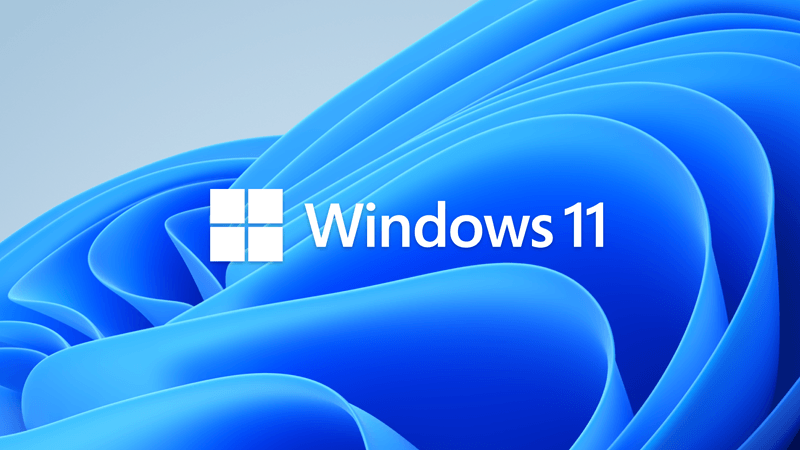Hello, everyone,
New to this forum, so not 100% as to how much of the system info section I've filled out will be visible to the reader here. I'm just going to skip the listing of my PC specs in this text body for now.
Context: Earlier this month, I undertook a big hardware upgrade of my Windows 10 desktop computer where I manually uninstalled almost every old part from my case and assembled the new parts. After that, I upgraded from Windows 10 to Windows 11 on my then boot drive. After figuring I couldn't just move that Windows installation to the new M.2 SSD, I manually installed Windows 11 on said new SSD using a USB flash drive with the Win11 ISO which went just fine. Then I formatted the old boot drive and selected the new one as the boot drive in Windows settings (for some reason, the BIOS itself wouldn't list that drive as a boot option despite recognizing the drive itself in other option menus; BIOS still thinks we are booting from the old boot drive).
For the first few days, the PC ran without any issues whatsoever. Then, it started frequently crashing giving me blue screens. Interestingly enough, it never crashed under load of a highly resource-intensive application/ game. Most of the crashes appeared right after booting to the log-in screen or right after logging into my user profile. After the initial crashes, the PC would immediately restart, seemingly using some form of secure boot mode (deducting this as, upon restarting, the log-in screen only featured a default blue background without info panels instead of the usual randomly fetched image with trivia surrounding it). After that restart, the PC would not crash again at all. Shut it down for the day and normally start it anew the following day, and it would be a coin toss whether or not it would repeat the pattern.
I have already tried running the PC without XMP enabled in BIOS which surprisingly led to it not crashing again for a day or two but now, we are back to the same old.
Any ideas on what to do? I have already run an sfc /scannow and Windows's built-in RAM diagnosis tool, the latter for two runs/ cycles, and neither of them reported any issues.
Side note: The crash logs surprisingly state that my OS is apparently Windows 10 when it is actually Windows 11.
V2 Log collection is too big to upload here, so have a dropbox link instead! Dropbox
Thank you so much in advance!
New to this forum, so not 100% as to how much of the system info section I've filled out will be visible to the reader here. I'm just going to skip the listing of my PC specs in this text body for now.
Context: Earlier this month, I undertook a big hardware upgrade of my Windows 10 desktop computer where I manually uninstalled almost every old part from my case and assembled the new parts. After that, I upgraded from Windows 10 to Windows 11 on my then boot drive. After figuring I couldn't just move that Windows installation to the new M.2 SSD, I manually installed Windows 11 on said new SSD using a USB flash drive with the Win11 ISO which went just fine. Then I formatted the old boot drive and selected the new one as the boot drive in Windows settings (for some reason, the BIOS itself wouldn't list that drive as a boot option despite recognizing the drive itself in other option menus; BIOS still thinks we are booting from the old boot drive).
For the first few days, the PC ran without any issues whatsoever. Then, it started frequently crashing giving me blue screens. Interestingly enough, it never crashed under load of a highly resource-intensive application/ game. Most of the crashes appeared right after booting to the log-in screen or right after logging into my user profile. After the initial crashes, the PC would immediately restart, seemingly using some form of secure boot mode (deducting this as, upon restarting, the log-in screen only featured a default blue background without info panels instead of the usual randomly fetched image with trivia surrounding it). After that restart, the PC would not crash again at all. Shut it down for the day and normally start it anew the following day, and it would be a coin toss whether or not it would repeat the pattern.
I have already tried running the PC without XMP enabled in BIOS which surprisingly led to it not crashing again for a day or two but now, we are back to the same old.
Any ideas on what to do? I have already run an sfc /scannow and Windows's built-in RAM diagnosis tool, the latter for two runs/ cycles, and neither of them reported any issues.
Side note: The crash logs surprisingly state that my OS is apparently Windows 10 when it is actually Windows 11.
V2 Log collection is too big to upload here, so have a dropbox link instead! Dropbox
Thank you so much in advance!
- Windows Build/Version
- 24H2 (Build 26100.2894)
My Computer
System One
-
- OS
- Windows 11
- Computer type
- PC/Desktop
- CPU
- Intel Core i7-14700KF
- Motherboard
- ASUS TUF Gaming Z790-Plus Wifi
- Memory
- G.Skill Ripjaws S5 32 GB (2 x 16 GB) DDR5-5600 CL28
- Graphics Card(s)
- NVIDIA GeForce RTX 4070 Super
- Sound Card
- / (onboard)
- Monitor(s) Displays
- Dual-monitor setup (primary: Microstep MAG 274UPF E2; secondary: Asustek Computer Inc VG279QM)
- Screen Resolution
- 3940x2160 | 1920x1080
- Hard Drives
- CT1000T500SSD8 - Samsung SSD 840 PRO Series - Samsung SSD 860 EVO 1TB - ST1000DM003-1CH162
- PSU
- 1000 Watt Corsair RMe Series RM1000e Modular 80+ Gold
- Case
- NZXT Phantom ATX Full Tower Case
- Cooling
- Noctua NH-D9L 46.44 CFM CPU Cooler
- Other Info
- Almost brand-new build from early January, 2025 // Upgraded from old computer only carrying over hard-drives listed above apart from new Crucial NVME M.2 SSD. BIOS flashed to version 1805. Other drivers all up-to-date.









